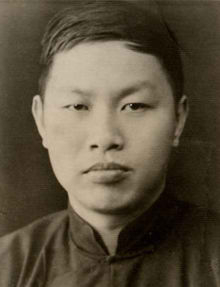Tamar, the Canaanite, was the wife of Judah’s first son, Er came to be known to us from the book of Genesis and would hardly be believed or associated to the discipleship that came to be known in the Gospel unless one came to learn the same. But of everything that discipleship is this is what it is the most of: because what would ever tell us how violent a thing righteousness is, and particularly to bring forth a child. Judah not knowing that the Seed of Righteousness awaited His entrance through him, learned not to despise the wickedness of his sons imposing Tamar to impossible hopes and insufficient means of which neither man nor the Law was able to provide. So that God despised and expelled the evil of Judah’s son, Er and angered at the despicable example of his brother Onan who discharged himself in order to avoid raising up a child that was not his heir. God judging that no son born to Judah, Tamar’s father-in-law was sufficient for bringing forth His posterity. And in fear, Judah hesitated to fulfill the Law of God by offering his youngest and last son to Tamar lest evil be found in him, motivating his judgment and death as God had judged and killed the others. Tamar thus concluded after testing all else that neither sitting down in complacency, docility, nor the patronizing manner that her station as a woman and wife delivered to her could achieve against the Law, the righteous goal. Tamar was persuaded by a conviction and knowledge (which is now known as faith) that could not be found among her natural things as by marriage, family, people, or nation, nor by the Law which governs carnal things. But like Rahab, she was quickened in mind and spirit to hurdle over the imposing wall of servitude and restraint to reach the liberty of faith. So that she got up and put off the garment of mourning laying aside the bonds which are a constant reminder of sin; and put on the garment of passion that could not be resisted by any other bond making her captive to God and sat down in a vulnerable place that few women, particularly or even men would regard as a place of nobility. She sat down under the guise of a harlot to induce Judah’s passion to satisfy his flesh for the sake of God’s posterity. God knowing it is where kings are born, and even royalty where contrary to appearances and the subjection of the Law in the grungy confines of worthless things is where the Gospel was born. The uncanny works of Faith that have stooped to such levels more than once to gain God’s will–hidden from the natural eye, His righteousness that what appears lawless in the eyes of the unlawful is indeed righteous and in return judging that anything of high esteem to man is abomination. Taking the low road as so many of Christ’s disciples do and have done, rejecting the most predictable and natural response to righteousness for the demeaning and mortifying, accepting the shame of it for the joy that is before them. Learning to run the impossible race that like Christ, they should not receive the promise of life without having shared with Him in its sufferings— this is Tamar. She knew that if in keeping the Law under the subjection of men, she was held captive to sin—then transgressing it made her no less. But if in breaking the Law in the face of a higher Law, the Gospel being the will of God, then righteousness would be her captivity and her freedom, and much more gratifying, the pleasure of God. Tamar became the answer to men and women alike of the confines that exist about us by sin under the name of the Law, religion, and propriety that cannot achieve virtue or the righteousness of God because it offers to God from the flesh that it might obtain in the flesh. But the discipleship of Christ for the sake of the Gospel recognizes that a greater Law compels them and is unable to be reached unless they are loosen from the Law of sin that they might serve God rather than men. Knowing that the first Law did not commit them to God, but to sin, and thus to judgment which is in subjection to men and to God. But the second Law does not speak to sin and cannot be heard by it, so that it does not begin with ‘Do not’, but it is the righteousness (will) of God carried forth and by it, there is no Law against it. And it speaks like this: ‘Blesses are the poor in spirit…Blessed are you when you mourn…Blessed are you, the meek….Blessed are those who hunger and thirst for righteousness…Blessed are you, the merciful…Blessed are you who make peace with God (rather than men) for you will be called the sons of God…Blessed are those who are persecuted for the righteousness’s sake for theis is the kingdom of heaven”.
This revelation goes even further to speak to all of mankind in the face of the woman and the slave if by what is read it is not yet understood. Because it is especially certain that in religion, where the liberty of faith is not possessed or lived, and in the Christian community where sin is present or in the calling of the sinner that this first Law is still in force, both in what is taught and what is learned. So that God’s first Law subjects mankind and more acutely women to the authority of men saying, “Your desire will be for your husband, and he shall rule over you”, and in another place, saying “Let a woman learn in silence with all submission…For Adam was formed first, then Eve. And Adam was not deceived, but the woman being deceived, fell into transgression. Nevertheless she will be saved in childbearing…” Both of these being the same, the Law were an answer to sin and an operation of restraint. However the righteousness of God’s second Law, the Gospel says, “For as many of you as were baptized into Christ have put on Christ. There is neither Jew nor Gentile, there is neither slave nor free, there is neither male nor female; for you are all one in Christ Jesus“, as answer to those who are righteous and know the will of God. But just as was found in Judah, righteousness is not always at first seen or at last, understood and as a result leads to the persecution and suffering of the righteous not as a consequence of sin, but against sin. This is not just true of women of faith, but of the great cloud of witnesses who have gone ahead of us–where righteousness cannot be perceived in a woman, it cannot be perceived in a man either. Then we know that the first law reckons us to sin because where there is Law, there is also sin, and Christ commands that the first is taught, not as an exercise of liberty, but for the conviction of sin. But the second reckons us to Christ because where there is righteousness of the Spirit, there is liberty, against such there is no Law. (Genesis 3:16; 1 Timothy 2:11-15; Galatians 3:27, 28; 5:18–24; 2 Corinthians 3:5–18 NKJV)




